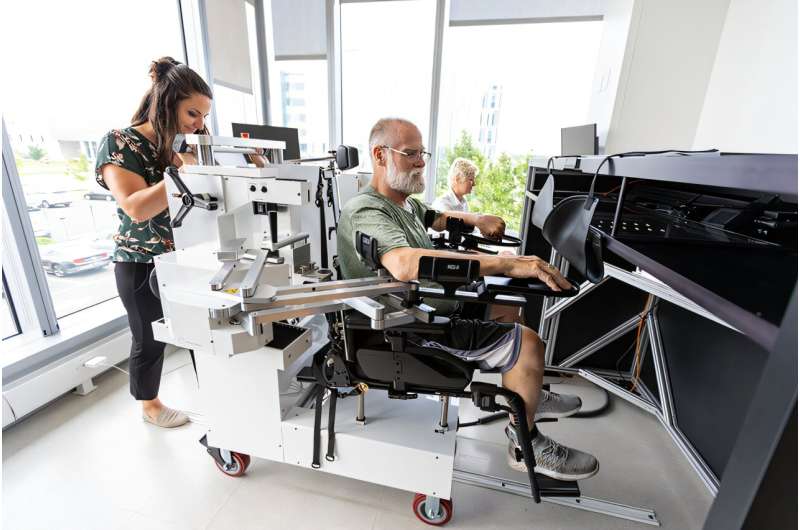“At the hospital, they told me an aneurysm caused my stroke,” he said.
He would remain there for two months, and after extensive physical therapy, Lewis regained use of his left leg. His left arm remains paralyzed.
“I feel pain when I hit it or scrape it walking through a doorway, but I can’t control the motion.”
Since then, the cancer survivor has had two more strokes.
Now, Lewis is helping University of Delaware researchers understand one of the most overlooked challenges in stroke recovery—proprioception, the body’s ability to sense movement and position.

